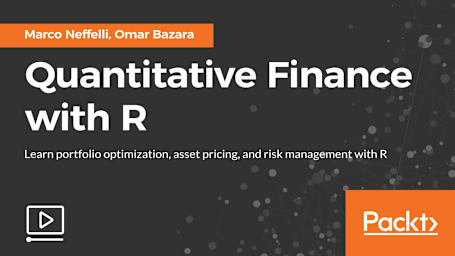
Data is exploding all over the place and your application needs an update for its database. You need to accommodate incoming data without being involved in every small detail. Yes! You can do that with Azure Cosmos DB - the globally distributed, multi-model database service offered by Microsoft Azure to serve your applications on planet-scale. Azure Cosmos DB is a fast and flexible globally replicated database, well-suited for IoT, gaming, retail, and operational logging applications.
The code bundle for this course is available at - https://github. com/PacktPublishing/Scaling-Web-Apps-with-Cosmos-DB
In this course, we’ll show you how to create and integrate your Azure Cosmos DB with the different NoSQL Databases. This course has got everything, from finding the right database for your data and your different workloads to the ease of administration, scalability, and SLA that you can rely on. With the click of a button, Azure Cosmos DB enables you to elastically and independently scale throughput and storage across any number of Azure's geographic regions.
You’ll see how Cosmos DB is the best choice for your cloud database. With the skills we pass on, you’ll be able to solve challenges and problems such as fixing the database model, availability, scalability, latency, data schemas, and others. In no time, you’ll learn to build your application with Cosmos DB the best cloud database while minimizing your administration and maintaining your availability and scalability.
Target Audience
This course expects viewers to have some basic knowledge of financial markets and a good understanding of R programming. However, they need not have any knowledge of quantitative finance or working with financial data. If you're new to quantitative finance and R is your go-to language, this is your perfect course.
Business Outcomes
-
Use R and its libraries to solve real-life quantitative finance problems and gain valuable insights into core financial markets.
-
Learn important quantitative finance concepts in R with instant implementation through practical examples, allowing you to speed up your learning process and build a solid base.
-
Join the R community for financial markets in great style with the most important and up-to-dated R packages explained in-depth.







